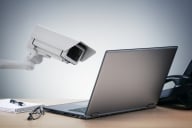You have /5 articles left.
Sign up for a free account or log in.
The Motion Picture Association of America endorses creativity, in general. But when it comes to laws forbidding students from pirating movies, it would prefer that colleges adhere to the MPAA's interpretation rather than coming up with their own.
In an open letter addressed to college presidents, the MPAA last week emphasized that the Higher Education Opportunity Act of 2008, which took effect last July, requires colleges to develop a written plan for dealing with students who download movies illegally using their networks. The letter points to a website outlining steps the MPAA recommends for complying with that law, as well as a list of “role model” institutions compiled by the higher ed technology nonprofit Educause.
It also says that if any campuses are hosting a lot of illegal downloads on their networks, the film companies will let them know about it.
“Online theft is a job killer that also reduces the number of opportunities for graduates of your institution to make a living in the creative sectors,” reads the letter, which is addressed from Daniel M. Mandil, the association’s top lawyer. It goes on to say that the association "will be forwarding notices related to our members' movie and television content, in order to make you aware of specific instances of illegal activity on your campus' network."
Still, the letter does not contain any explicit threats of litigation. Instead, it directs administrators to sites — such as Hulu, Zune Video, and TV.com — where films and TV shows can be streamed online legally. The idea is that instead of policing their students by proxy, colleges might curb illegal file sharing by educating students about legal alternatives.
Peter DeCherney, a copyright expert and assistant professor of cinema studies and English at the University of Pennsylvania, says the letter is most likely an attempt by the film industry to establish an MPAA-friendly reading of the Higher Education Opportunity Act’s copyright stipulations — DeCherney says the language of the law is actually “really vague and flexible” on the matter — and shepherd colleges into compliance with that interpretation.
The letter, which reads as helpful and collegial, represents a change in tone from earlier overtures from the film industry to colleges about illegal file-sharing, DeCherney says. The MPAA, along with the Recording Industry Association of America (RIAA), in recent years has sent dozens of letters to colleges warning that institutions that fail to prevent illegal downloading on their networks could face legal consequences. Many colleges have resisted, saying that they are not interested in spying on students. Tensions were not helped by the discovery, in 2008, that a 2005 MPAA study on the impact of illegal file sharing on industry revenues had overstated the culpability of college students by 200 percent.
DeCherney says the new tack implied by this letter — offering to help with institutional compliance and showing students where they can watch movies online without downloading them illegally — will probably be more effective than threats of litigation. “To me that looks like a positive turn,” he says, “and probably more effective than trying to intimidate students and universities.”
For the latest technology news and opinion from Inside Higher Ed, follow @IHEtech on Twitter.








